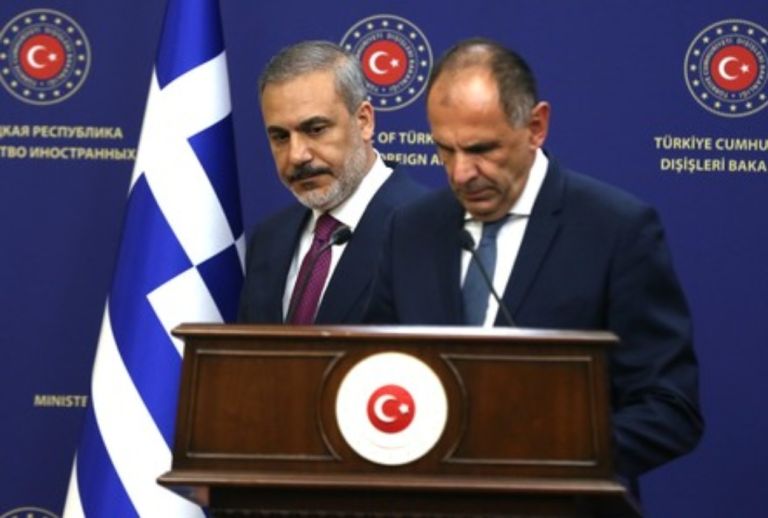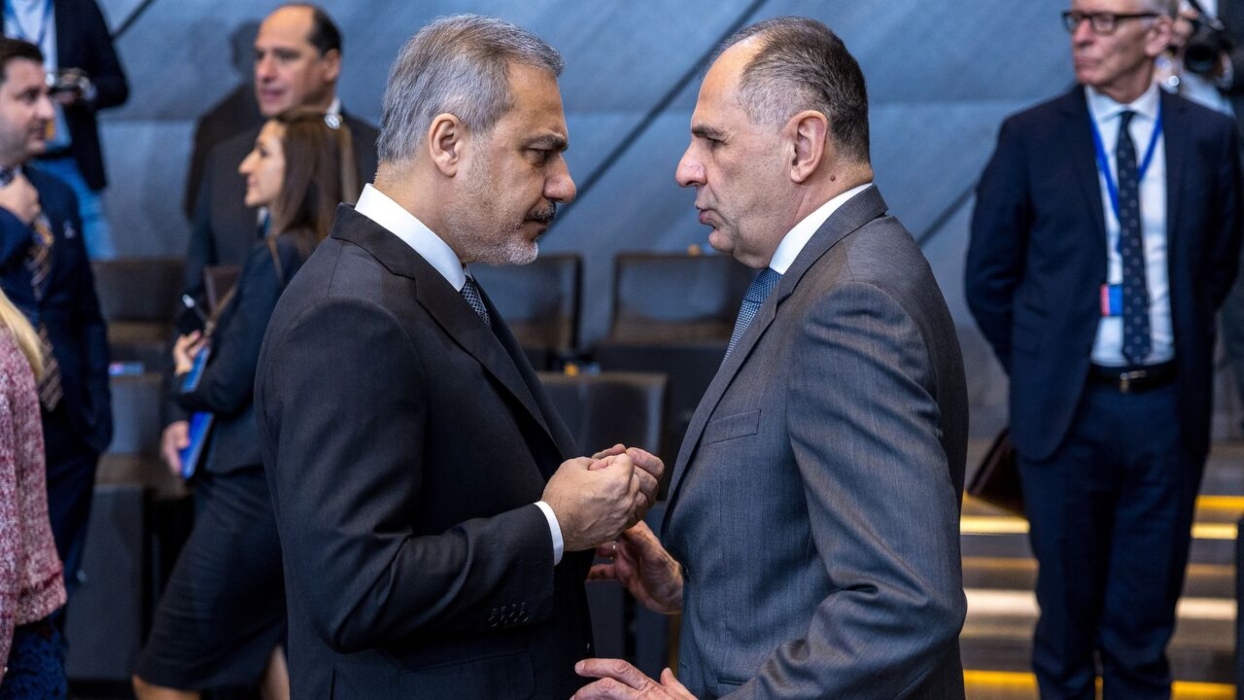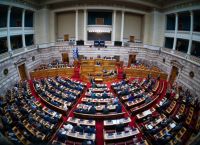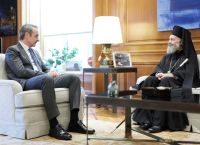Gerapetritis vs. Fidan: “No discussion on national interests” — Tensions flare between Athens and Ankara

Πηγή Φωτογραφίας: AP Photo//Gerapetritis vs. Fidan: “No discussion on national interests” — Tensions flare between Athens and Ankara
Turkish provocation meets firm Greek response
Turkish Foreign Minister Hakan Fidan’s statement that “Europe’s security system has been captured by one or two countries like Greece” has sparked a new diplomatic confrontation between Athens and Ankara.
Greek Foreign Minister Giorgos Gerapetritis responded swiftly and unequivocally, rejecting Ankara’s claims and emphasizing Greece’s independent and principled foreign policy:“Greece conducts an active and consistent foreign policy based on the universal values of international law and does not allow others to dictate its course.”
He added pointedly:“Greece genuinely seeks peace and good neighborly relations. However, when it comes to national interests, there can be no discussion.”
Fidan: “Greece has nothing to do with Europe’s security”
In a statement on Saturday, Fidan escalated his rhetoric, accusing Athens of monopolizing Europe’s security agenda through its role in EU and NATO structures.“Europe’s security system has been captured by one or two countries, like Greece. These countries have nothing to do with Europe’s security,” he said.
Fidan also invoked historical arguments, recalling Ankara’s 1980 decision to allow Greece to rejoin NATO’s military structure after its 1974 withdrawal.“Turkey said ‘yes’ then, prioritizing stability. Now, we expect the same strategic maturity from Greece.”

The SAFE program — the hidden trigger
The EU SAFE security initiative lies at the heart of the latest tension. The program strengthens Europe’s defense architecture and gives Greece a key strategic role due to its geographic position and infrastructure links to Eastern Mediterranean security.
Turkey, which is not part of the EU but seeks influence in European security affairs, views Athens’ involvement as limiting its own leverage. Fidan’s remarks were seen as an attempt to delegitimize Greece’s position in shaping EU security policy.
Competing narratives: law vs. revisionism
Athens bases its foreign policy on international law and alliances, portraying itself as a pillar of stability in the Eastern Mediterranean. Ankara, meanwhile, uses a revisionist narrative to portray Greece as an obstacle, seeking to position itself as an indispensable security actor for Europe.
This clash is not only about bilateral relations but also about:
- Who shapes Europe’s future security architecture,
- The geopolitical balance in the Eastern Mediterranean,
- NATO dynamics in the wake of the Ukraine war.
Geopolitical stakes rising
Greece’s close alignment with the EU and NATO in defense initiatives strengthens its strategic weight. Turkey, facing limitations in its relations with both Brussels and Washington, appears to be using aggressive rhetoric to regain room for maneuver.
Gerapetritis’ statement — “no discussion on national interests” — functions as a clear red line, signaling that Athens will not negotiate its sovereignty or strategic role.
A new front on the Euro-Turkish chessboard
The Gerapetritis–Fidan exchange is more than a war of words. It reflects a deeper geopolitical struggle over who will shape the security landscape of Europe’s southeast flank.
While Greece positions itself as a legitimate, trusted partner of the EU and NATO, Turkey seeks to reassert influenceby challenging Athens’ role.
Athens’ message is clear: peace and stability are desired, but not at the expense of national sovereignty.
Πηγή: pagenews.gr
Διαβάστε όλες τις τελευταίες Ειδήσεις από την Ελλάδα και τον Κόσμο






Το σχόλιο σας